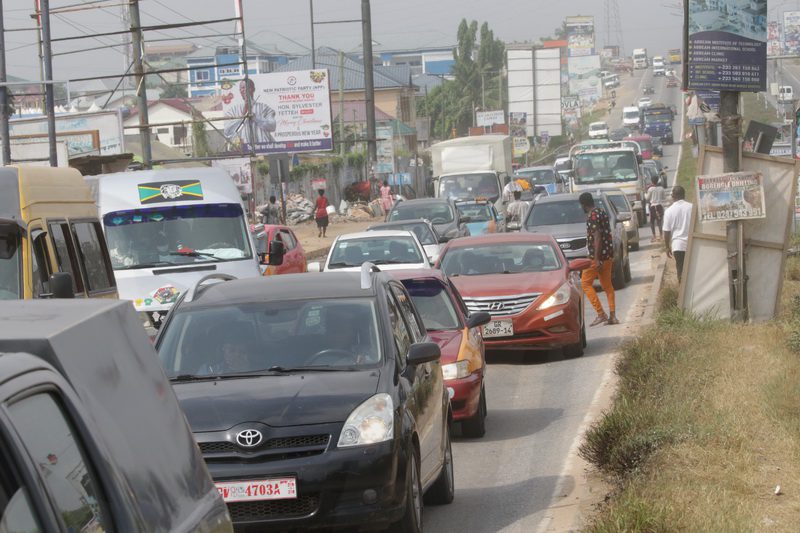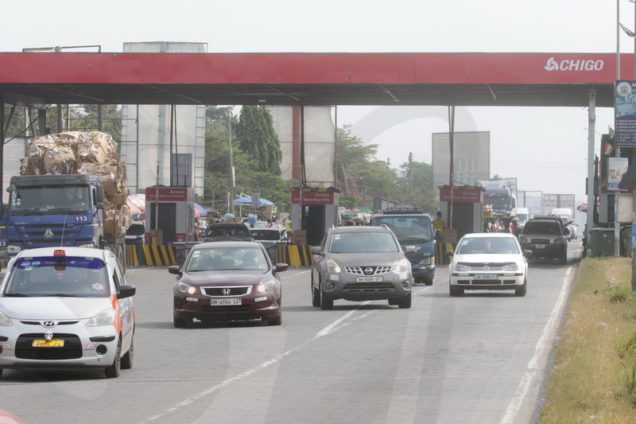Government has announced that motorists who ply tolled roads across the country, will no longer be required to pay tolls immediately after the Budget is approved.
The Finance Minister disclosed this during the 2022 budget presentation on the floor of Parliament on Wednesday.
“Government has abolished all tolls on public roads and bridges. This takes effect immediately the Budget is approved,” he announced
Although he said the tolling system has played a crucial role in funding the expansion of Ghana’s road infrastructure, the Minister noted that tolling points create unpleasant situations.
“Over the years, the tolling points have become unhealthy market centres, led to heavy traffic on our roads, lengthened travel time from one place to another, and impacted negatively on productivity.
“The congestion generated at the tolling points, besides creating these inconveniences, also leads to pollution in and around those vicinities,” Ken Ofori-Atta said.

To address these challenges, he said that it is necessary for the government to take a decision against the set up of tolling points.
Ken Ofori-Atta mentioned that the "toll collection personnel will be reassigned”
“The expected impact on productivity and reduced environmental pollution will more than offset the revenue forgone by removing the tolls,” he added.
Alternatively, the Finance Minister said, "a portion of the proceeds from the E-Levy will be used to support entrepreneurship, youth employment, cyber security, digital and road infrastructure among others. 3y3 Baako, Ye nyinaa be tua."
Earlier, the Information Minister, Kojo Oppong Nkrumah, had indicated that just about 30% of vehicles in the country pay road tolls.
Kojo Oppong Nkrumah said that the money generated from these road users was not enough to cater for the expansion of road infrastructure across the country, hence, the need to “come to an era where everyone pays something.”
Speaking to Joy Business’ George Wiafe on Wednesday, the Information Minister indicated that road tolls will not be included in the cost of petrol.
He argued that analysis made by the government showed that such an action would have far-reaching consequences on the standard of living of Ghanaians.
“Our analysis shows the consequence and the kind of hardship that it could bring on food prices, transport fares, and general inflation.
“So you may have to move from there and move to some other measure that allows a lot more people to participate in it and at the same time protect the poor and the vulnerable,” he said.
Latest Stories
-
Russell Brand charged with rape and sexual assault
10 minutes -
Drobo Traditional Council sets GHs6k, six sheep as fine for sharing viral nude videos
15 minutes -
Chance of asteroid hitting Moon increases slightly
41 minutes -
Interior Minister tasks police to crackdown ‘Tinker Island,’ a popular drug den in Kumasi
56 minutes -
GMet warns of heavy rains and flooding, urges coastal residents to take precautions
1 hour -
Ghana Bauxite Company deploys methods to mitigate environmental impact of operations
1 hour -
Interior Minister raises concerns over drug trafficking in prisons
1 hour -
NPP will remain cursed until promise to Alan is honored – Kwame Owusu Danso
1 hour -
Supreme Court to hear suit challenging CJ’s removal process on April 9
2 hours -
Two Chinese nationals and 11 Ghanaians arrested for illegal mining in Western Region
2 hours -
From Love to resilience: PruCares Valentine’s Day Experience Impact on healthcare sustainability
2 hours -
Finance Minister engages Chinese Ambassador to deepen bilateral cooperation
2 hours -
7 illegal miners arraigned before Sekondi Special Court for Galamsey
2 hours -
NPP members actively involved in galamsey to disgrace Mahama – A Plus alleges
2 hours -
Prudential Life Insurance Ghana launches US$100,000 Climate Action Project in Chorkor
2 hours

